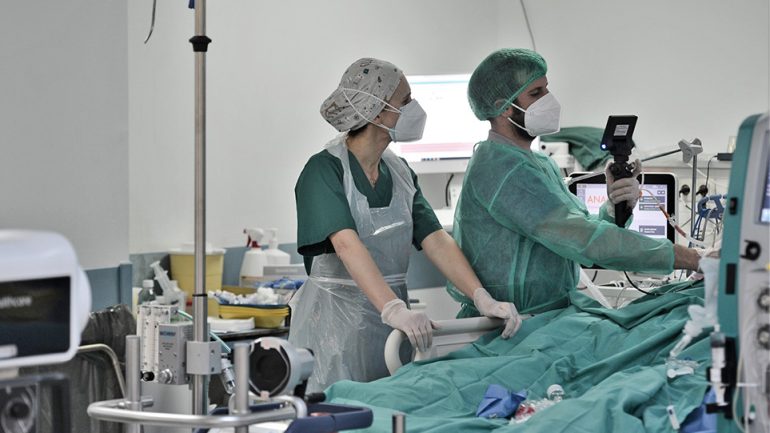The confirmed cases of the Omicron variant have increased in our country.
As announced by the president of EODY, Professor Theoklis Zaoutis, at the information event of the Medical School of EKPA on pandemics and vaccination, 26 cases of this mutation have been identified in Crete, Laconia and Attica.
Not all cases are related to travel abroad.
An increase is expected
The President of EODY stated that the cases with Omicron variant are expected to increase in the next period.
"Conflicts and cases that are currently being treated are in Crete, Laconia and some in Attica. "The Omicron variant has spread to 90 states in a month, and all the literature shows that it is more contagious."
Mr. Zaoutis stressed that what we do not know clearly is whether there is increased morbidity, a fact that may be associated with a milder disease.
He pointed out that if in the next period there is an increase in cases, this could be a signal that Omicron is also increasing in Greece.
Schools and epidemic
The president of EODY stated that vaccinations are the key element for the operation of schools.
At the beginning of the pandemic there was a low incidence of children, about 5%. However, now this percentage has reached 25-30% in children up to 17 years old.
This has two explanations, the Delta mutation and the increased vaccination rate in adults. "The self-tests helped a lot as we did not have increased influxes", stressed Mr. Zaoutis, urging parents to vaccinate their children.
For the epidemiological situation in our country
The professor of epidemiology, Pagona Lagiou, spoke about the epidemiological situation in Greece at the conference.
As reported every Tuesday, the subgroup of epidemiologists monitors certain indicators related to the rate of cases, hospitalizations and geographical spread.
Ms. Lagiou stressed that there is a decrease in the number of cases from last week.
"The epidemiological burden remains high and that is why 20 areas remain in the deep red. "The picture is not the same in all regional units," he said, noting that the correlation between vaccination and the epidemiological situation in each region is striking.
tovima.gr
